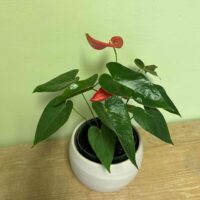Showing 1–12 of 18 results
-
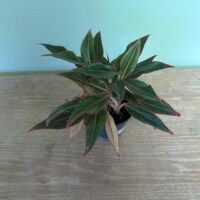 Read more
Read morePet Warning:Toxic To Ingest Care Level:I’m Easy Approximate Size: 4″ to 14″ W 12″ to 16″ H The Aglaonema Red Siam (Red Siam Chinese Evergreen) is a no-fuss tropical plant that displays red and pink tones in its foliage. They make a regal accent to any room where there is medium to bright, indirect light. Water this specimen regularly.
-
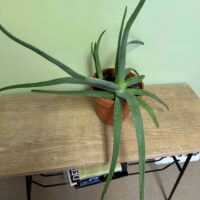 Read more
Read moreKnown for its lance-shaped leaves with jagged edges, aloe vera is a popular houseplant for many reasons: It’s one of the best air-purifying plants (great for the bedroom, bathroom or kitchen) and has an array of dermatologist-approved benefits like helping to reduce acne and wrinkles, healing wounds or easing irritation from sunburns. Plus, even if you’re far from a green thumb, caring for…
-
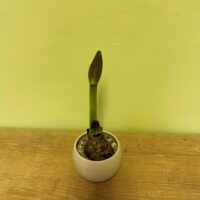 Read more
Read moreAmaryllis may be purchased as bare or planted bulbs, and are prized for their exotic trumpet-shaped flowers born on 1- to 2-foot leafless stalks or scapes. They add dramatic color to homes and gardens and make wonderful gifts to gardeners from beginners to experts. Native to Africa, the genus Amaryllis comes from the Greek word amarysso, which…
-
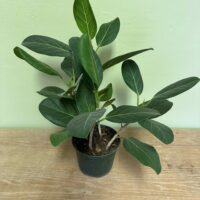 Read more
Read moreFor those who have loved and lost the finicky fiddle leaf fig, we introduce ficus Audrey (Ficus benghalensis). A close relative of the fiddle leaf fig, ficus Audrey is easier to grow and care for indoors and has a similar growth habit and appearance. However, it can be distinguished from the fiddle leaf by its smaller,…
-
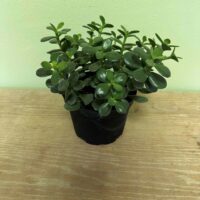 Read more
Read moreThe jade plant is a popular succulent houseplant with simple indoor care requirements and a very long lifespan of up to 70 years with the proper care. This plant is slow-growing—gaining only about two inches of height per year, but it can reach a total height between three and six feet. Jade plants feature thick, woody stems topped by…
-
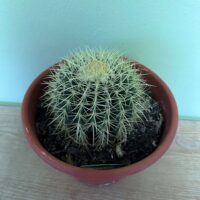 Read more
Read moreEchinocactus grusonii, commonly known as the golden barrel cactus, golden ball cactus, or mother-in-law’s cushion, is a species of barrel cactus that is endemic to east-central Mexico. It is a slow-growing cactus that can reach a height of up to 2 feet (60 cm) and a diameter of up to 3 feet (90 cm). The…
-
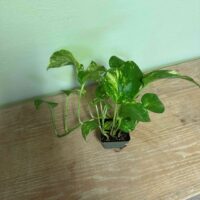 Read more
Read moreHow to Care for Pothos Plants Keep pothos plants in a warm location; room temperature is ideal. If exposed to regular drafts or colder temperatures, the plant’s growth can be affected. Place pothos in bright, indirect light. They will tolerate low light but will not grow as vigorously and may lose some or all of the variegation in their leaves….
-
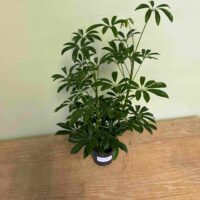 Read more
Read moreA Hawaiian Schefflera plant, Schefflera Arboricola, is often called a dwarf umbrella tree because it looks like a smaller version of the large Schefflera actinophylla. It is also called an Australian Ivy Palm and a Hawaiian Umbrella Tree. The plant was originally found growing as a flowering outdoor plant in Taiwan and is native to Australia as well. and is still…
-
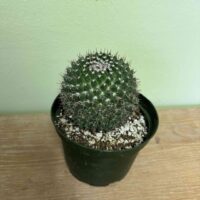 Read more
Read moreSun: These cacti prefer lots of sun, at least five hours of direct sun daily. Indoors a south facing window is ideal. Outdoors, place them in a spot where they will get plenty of sun exposure. If you are growing this plant outdoors be sure to provide it with light shade to protect it from intense,…
-
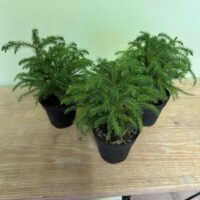 Read more
Read moreThe Norfolk Pine is a graceful, pine-like tree with a lacy, delicate appearance. It is popular during the holidays as an alternative to a traditional cut Christmas tree but makes an elegant statement all year round. LIGHT Your Norfolk Pine prefers bright indirect light to direct sunlight. It can adapt to medium light areas, but…
-
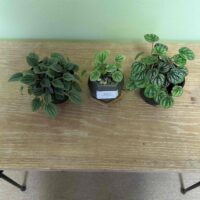 Read more
Read moreThe genus, in the peppercorn family Piperaceae, is home to over a thousand species of diverse plants—including popular houseplants such as the Watermelon Peperomia, Ripple Peperomia, Baby Rubber Plant, and more. The family Piperaceae belongs to an ancient lineage of flowering plants known as Magnoliids. These plants are mostly tropical, and are the source of…

